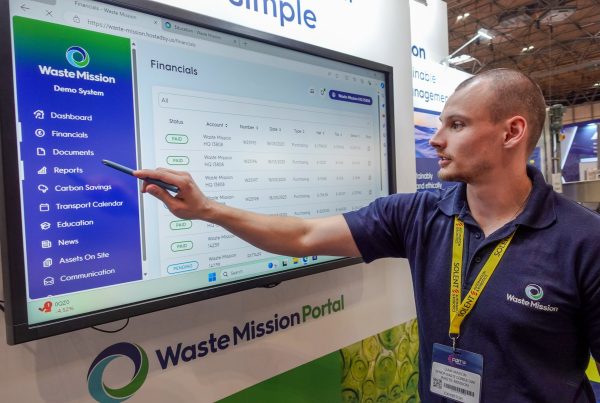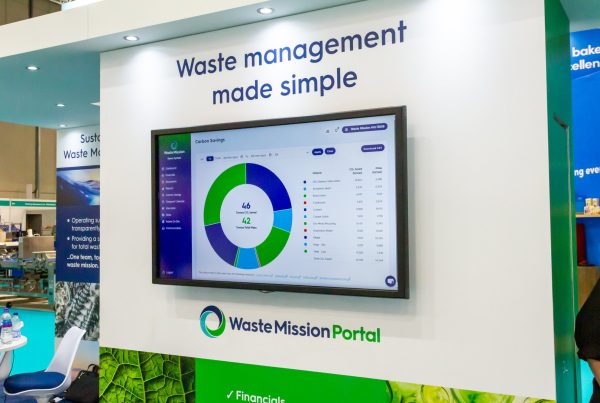Electrical and electronic waste is the fastest-growing waste stream, and its disposal is now tightly regulated. Therefore, electrical recycling is not something that your business can afford to ignore. However, in addition to the responsibilities surrounding electrical recycling, it also brings significant benefits.
Importantly, it can help you achieve your company’s Environmental, Social and Governance (ESG) goals – the standards which measure its impact on society and the environment, and how transparent and accountable it is. Responsible recycling can also improve your business’s reputation, making it more attractive to clients and investors, and supporting your bottom line.
So, is it time to reassess how you handle your electrical and electronic waste? Here’s our guide to doing it properly – and reaping the rewards.
The Environmental Impact of Electrical Recycling (or lack of it)
The amount of electronic waste discarded in the UK is growing, yet recycling rates are struggling to keep pace. The UN’s global E-Waste Monitor for 2024 found that the UK is the country with the highest e-waste generation in northern Europe (at 1.7 million tonnes per year or 24kg per head). In 2023, the UK government’s DEFRA pointed to a recycling rate of only 57 per cent.
When electrical and electronic goods are not properly disposed of or recycled and sent for incineration or landfill, they contribute to greenhouse gas emissions and pose significant environmental risks to air, land, and water, as well as human health, and incur additional disposal costs.
Electronic waste (or e-waste) is a particular concern. The UN’s global E-Waste Monitor for 2024 reports that the world’s generation of electronic waste is rising five times faster than documented e-waste recycling.
- A record 62 million tonnes of e-waste were produced in 2022.
- That figure is set to rise by almost a third, to 82 million tonnes, in 2030.
As one of the biggest generators of e-waste, the UK has an environmental and ethical responsibility to improve its recycling record on both electronic waste and electrical waste more broadly. And the pressure to go further with recycling is only going to increase as demand for raw materials rockets.
- By 2030 demand for all raw materials globally is expected to be double what it was in 2010.
- Demand for critical raw materials (those in short supply that are considered essential for modern technologies and industries, eg lithium) is expected to increase 20-fold over the same period.
Greater efforts to recycle electrical and electronic items can therefore play a significant role in reducing landfill waste, recovering valuable materials and reducing your business's carbon footprint.
What is Electrical Recycling?
Businesses in many sectors can generate a significant amount of electrical and electronic waste, ranging from microwaves to fluorescent lighting tubes.
Recycling electronic equipment in a way that is both legal and environmentally responsible requires time and attention and often WEEE recycling specialist. Segregating electrical and electronic items from other recyclable materials and from general waste in the office and on the factory floor is essential.
Most products that have a plug or use batteries are included under ‘waste electrical and electronic equipment’ (WEEE). WEEE includes:
- IT and telecommunications equipment, eg laptops, copiers, telephones
- Cables
- Lighting equipment
- Small appliances and tools
- Monitoring and control equipment, eg smoke detectors
- Manufacturing equipment
WEEE often contains a wide variety of materials, which means items need to be disassembled and materials segregated. For example, the average TV contains six per cent metal and 50 per cent glass. Some treatment centres use a manual process, others use automated processes, and some use both. Still other treatment centres use shredding technologies after hazardous materials have been removed.
Moreover, WEEE often contains hazardous materials, from the lead in mobile phone batteries to the cadmium used in semiconductor manufacturing, that pose risks to human health and the environment.
So, it’s important that companies disposing of electrical waste have robust quality-control measures and protocols in place to govern their handling, collection and treatment. Drawing on the support of experienced waste management experts, such as Waste Mission, is therefore particularly important for this recycling stream.
The Social Impact of Electrical Recycling
Electrical recycling reduces the need for new raw materials to be produced or mined. Yet, globally, only one per cent of the demand for rare earth elements is currently met through e-waste recycling.
Many electrical and electronic goods contain precious metals and minerals that are often mined in low-income countries. Sadly, in many such settings, the mining industry is associated with dangerous working conditions, even child labour and exploitation.
Furthermore, e-waste is rapidly becoming an environmental and social issue, particularly for low-income countries. Though legislation exists to limit the amount of e-waste that can be exported from high-income countries, laws are not always fully implemented. Where countries lack the infrastructure to recycle waste properly and at scale, mountains of WEEE waiting to be processed can contaminate the environment, as workers’ health is at risk from processing the often toxic materials embedded in this waste.
The good news for any client of Waste Mission is that all our electrical waste is handled within the UK, further helping your ESG reporting and social responsibility.
Supporting Your Environmental, Social and Governance Goals
It’s clear, then, that responsible recycling of electrical and electronic goods goes a long way to protecting both people and the environment, and to supporting your company’s ESG goals.
Therefore, it’s increasingly important to stay up to date with current WEEE regulations (such as the Waste Electrical and Electronic Equipment Regulation 2013) and your ESG reporting requirements.
Whether you are a sustainability manager or an operations director, ensuring your electrical recycling is compliant—and being able to prove it to statutory authorities, customers, and investors—is vital.
As experts in recycling electrical and electronic waste, we at Waste Mission offer a range of WEEE collection arrangements and can provide tailored guidance and solutions. This includes a bespoke customer portal where you can track all your electrical recycling data and demonstrate compliance transparently.
Furthermore, all our electrical recycling is conducted on UK soil, galvanising further progress for your ESG journey.
If you’d like to know more about how Waste Mission can help you maximise your opportunities in electrical recycling, book a waste review today.





